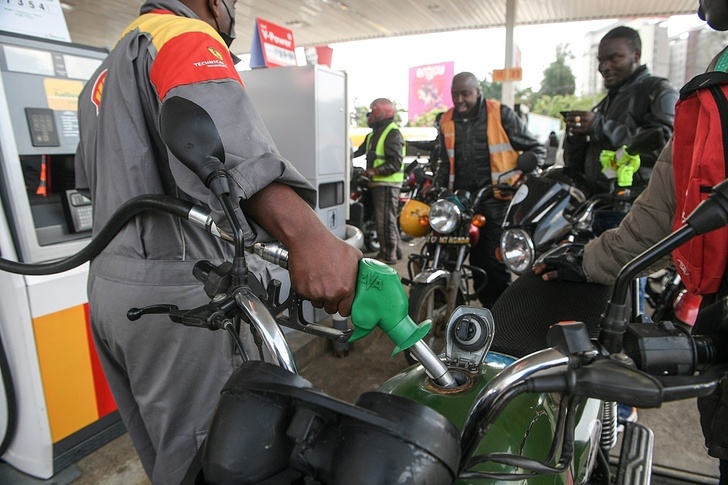Fuel prices in Kenya surged to record highs on Thursday after the new government slashed subsidies, piling on misery for a population already facing deep economic hardship.
The price of petrol increased by 20 shillings to 179.30 (about $1.50) per litre while diesel and kerosene prices are up by 20 and 25 shillings respectively, the Energy and Petroleum Regulatory Authority (EPRA) said.
The new price regime that will remain in force until October 14 was announced shortly after Kenya's new President William Ruto took office on Tuesday vowing to scrap food and fuel subsidies.
"The interventions in place have not borne any fruit," Ruto said in his inauguration speech.
Kenya is reeling from the global surge in crude oil prices and last year introduced measures to cushion consumers from the high retail prices.
It has so far spent 144 billion shillings ($1.2 billion) -- about 86 percent of tourism earnings this year -- to subside fuel, according to government figures.
Ruto lambasted the policies of his predecessor Uhuru Kenyatta, saying they gobbled up billions of shillings with no impact.
"In addition to being very costly, consumption subsidy interventions are prone to abuse, they distort markets and create uncertainty, including artificial shortages of the very products being subsidised," he said.
Under the new prices announced by EPRA, the subsidy for petrol has been removed while those for diesel and kerosene have been reduced.
Kenya is the most dynamic economy in East Africa but many are suffering financial hardship with about a third of the population living in poverty.
Prices for basic goods skyrocketed in the wake of Covid pandemic and the war in Ukraine, and unemployment remains a major problem, particularly among the young.
Inflation soared to a 65-month high of 8.5 percent in August, while the currency is at record lows at around 120 shillings to against the dollar.
There are fears the new fuel price increases could see public service providers hike fares and further add to cost of living pressures.
ho/txw/jv
© Agence France-Presse
Your content is great. However, if any of the content contained herein violates any rights of yours, including those of copyright, please contact us immediately by e-mail at media[@]kissrpr.com.
Source: Story.KISSPR.com

